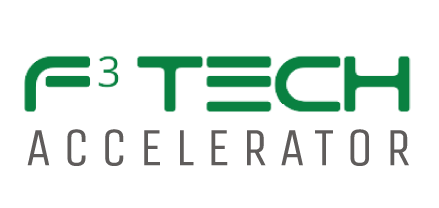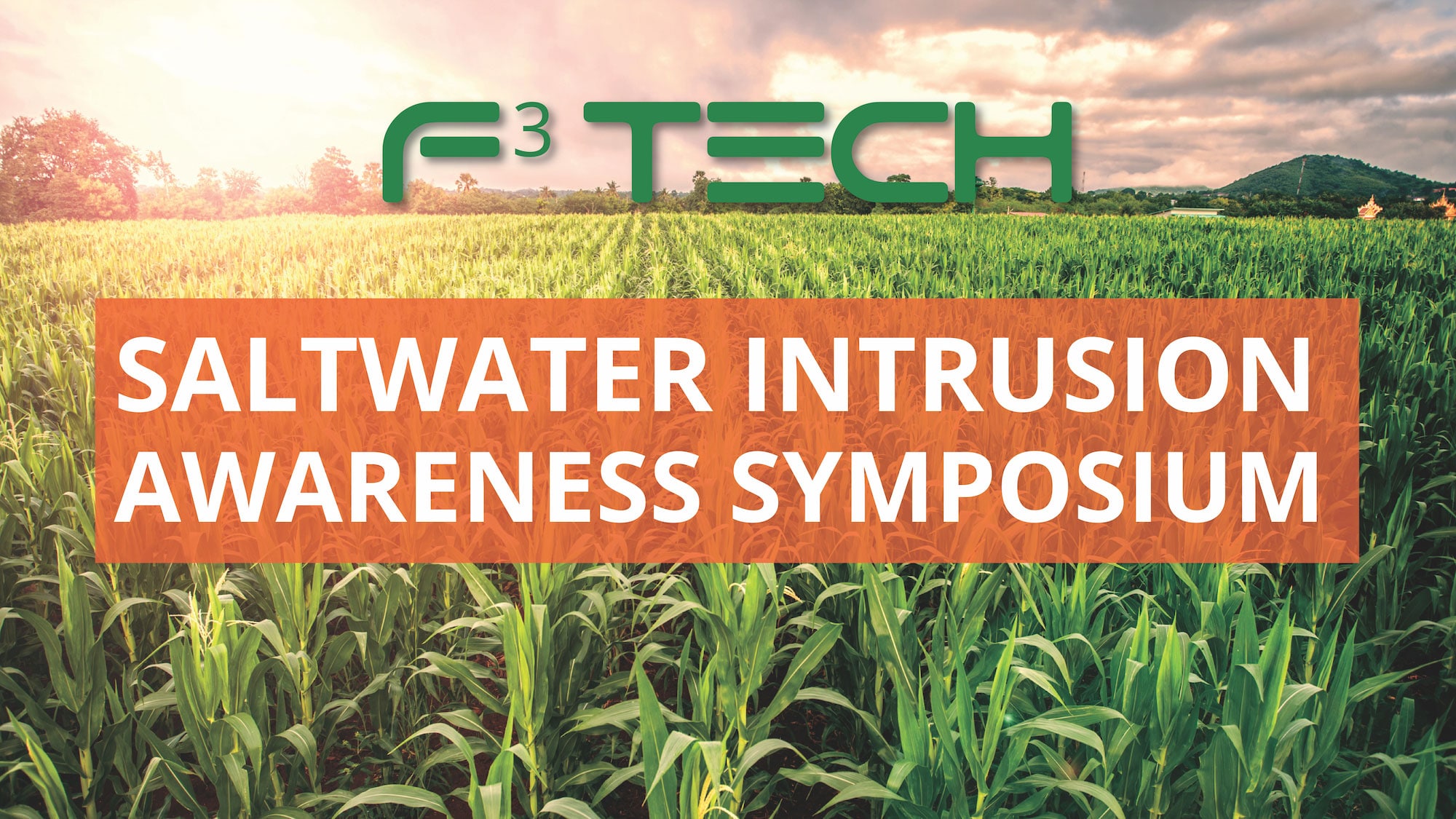November 22, 2019
9:00 a.m. to 3:30 p.m.
Annapolis, MD
FREE (includes lunch)
Limited Seating
RVSP Here
Maryland’s agricultural community, the state’s largest commercial sector, faces an immediate threat from the growing impacts of saltwater intrusion, in which saltwater from the Chesapeake Bay is compromising groundwater and soil, disrupting communities and rendering arable land useless to traditional farming.
As saltwater cannot be used to irrigate crops or serve as reliable drinking water, saltwater intrusion is becoming increasingly problematic to coastal communities that rely on fresh groundwater for their everyday needs and economic livelihood.
F³Tech (Farm-Fish-Food), a statewide accelerator program creating economic growth and prosperity through innovation and technology built upon Maryland’s traditional industries of agriculture and seafood, and other partner organizations have invited top researchers to share their findings and knowledge related to saltwater intrusion at a free symposium on Friday, November 22, from 9 a.m. – 3:30 p.m. at the Doordan Institute in Annapolis, Maryland.
Entitled “Responding to Saltwater Intrusion and Its Impact on Agriculture,” the symposium will present the issue of saltwater intrusion in greater detail, focusing on the current and future challenges while also exploring possible solutions. The symposium’s agenda includes a series of speakers and breakout sessions, including presentations by Kate Tully, Ph.D., a leading researcher on the issue of saltwater intrusion from the University of Maryland, and Paul Ulanch from the North Carolina Biotechnology Center and the North Carolina Saltwater Intrusion Task Force.
“We often talk about sea-level rise and climate change as this thing that’s going to happen in the future,” says agro-ecologist Kate Tully, Ph. D. “But it’s happening now. We’re at the point where we are losing farmland.” She adds, “We must come up with strategies to manage saltwater intrusion that protect our farmers’ well-being.”
Saltwater is getting into aquifer systems in several ways, including flooding from storms and increasingly stronger high tides, sea-level rise, the capillary effect of drawing water for irrigation of crops from water tables, and other means of intrusion.
“The State of Maryland is currently working on its response plan, due in December, that will explore how saltwater intrusion affects not just Maryland’s agricultural land but also its aquifers, infrastructure, wetlands, and more,” said Rob McCord, planning secretary at the Maryland Department of Planning. “The plan will also identify research priorities to determine which areas are at risk, understand what those future effects are likely to be, and start sketching out adaptation strategies. “
The symposium on November 22 is a precursor to a series of one-day ideation/hackathons set for next year in Maryland, Delaware, and North Carolina that will focus on student ideation of new approaches and technologies targeting saltwater intrusion. These events serve as entry points into the innovation ecosystem and a pipeline to other accelerator programs that help facilitate the commercialization of innovations and technologies.






